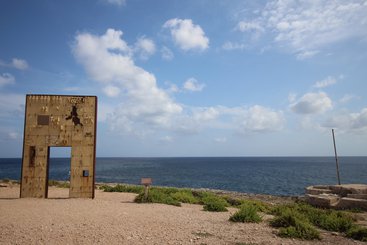With urban populations rapidly increasing, cities are critical spaces for action to improve citizens’ well-being. Well planned, well managed and inclusive cities can reduce poverty and drive national economies as well as play a critical role in decarbonisation efforts. As cities increasingly step up to develop real-world solutions to some of our biggest shared challenges, clearly there is a major need for practical research to support cities’ learning and innovation.
The Mayors Dialogue: city-led problem-solving
The Mayors’ Dialogue on Growth and Solidarity – led by Mayors Yvonne Aki-Sawyer from Freetown and Giuseppe Sala from Milan – is a city-led platform that provides researchers from ODI and city practitioners with the opportunity to work together to foster learning and knowledge exchange.
In our first moment of reflection, we wanted to share some insights from cities, including particularly the city of Kanifing which has actively contributed to learning and exchange through the Mayors’ Dialogue platform.
Local economic development is high on the agenda
Through the Dialogue, we have been learning first-hand about cities’ priorities for action.
Though many and varied, there are commonalities. Maximising local economic development is always high on the agenda.
Through the Dialogue, Milan and Freetown are for instance actively working to connect their local fashion industries, build up the capacities of designers and entrepreneurs and stimulate innovations in both cities.
A desire to explore new financing options for cities is perhaps the great unifying theme across the Dialogue
European cities face major challenges given the need to decarbonise urban infrastructure and respond to increasing difficulties in financing affordable and social housing.
African cities frequently struggle to fund basic services and infrastructure development. Their ability to raise revenue directly via taxation is limited and intergovernmental transfers are often insufficient.
Under pressure to do more, many cities are looking at a wider range of financing options, including municipal bonds.
The city of Paris issued its first green bond in 2015, raising $336 million to support the implementation of the Paris Climate Action Plan in areas such as renewable energy, retrofitting buildings and improved waste collection. Investment in municipal green bonds, particularly, is growing and green bond issuances are regularly oversubscribed.
Some African cities have investigated municipal bond issuances and it is a topic of continued interest in the Dialogue. South African cities, in particular, are in a strong position in this regard, given an enabling legislative framework and successful green bond issuances in Johannesburg and Cape Town.
We are actively learning from these processes, combining ODI’s expertise on bonds and capital market development with an opportunity to look at this more systematically at the municipal level with cities engaged in the Dialogue. We aim to develop further research and technical assistance in this area.
Concerns are not just economic, however. Many cities are grappling with the provision of basic services
Waste management has also emerged as a key sector of interest. Often the single highest budget item for many local administrations in low-income countries, it is a highly visible service that can have a large influence on residents' perceptions of government effectiveness.
We are working with a number of cities to share their innovations in this space: from microenterprise development for waste collection in Freetown to investments in modernising waste collection services in Kanifing, we will be looking at how cities organise – and finance – their waste management systems.
Many African cities are also experimenting with property tax reform to maximise the revenue they can generate to fund basic service provision. Numerous cities within the Dialogue (including Freetown, Dakar and Kampala) have experience experimenting with property tax reforms.
As Kanifing’s experience demonstrates, there is great merit in exchanging knowledge in all of these areas.
Kanifing’s exchanges with partner cities
Kanifing is one of the largest municipalities in The Gambia with a population of half a million residents. Referred to as the ‘Heartbeat of The Gambia’, it’s the vibrant economic and cultural core of the country. The municipality boasts beautiful scenery, with the Atlantic Ocean on one side and lush mangroves on the other, which attract thousands of tourists on an annual basis. It has also, through participation in the Mayors’ Dialogue, forged important and innovative exchanges with other member cities.
Enhanced waste collection in Kanifing
The Kanifing Municipal Council, under the leadership of Mayor Talib Ahmed Bensouda, have taken innovative steps to enhance service delivery across a variety of sectors, including waste management and public transportation. The Council’s flagship initiative is an investment in 24 waste compactor trucks [Youtube] to introduce a comprehensive waste collection service to its residents.
The Mayors’ Dialogue has offered a unique forum for Kanifing to share how it achieved its current waste collection system with partnering cities in the region, through a variety of bilateral and multilateral exchanges.
Kanifing’s waste collection project is the result of a public-private partnership that supported the initial fleet acquisition, along with a grassroots approach to ownership and operations rooted in the municipality’s 19 ‘Ward Development Committees’. These community governance structures help to ensure the sustainability of the project, enhance accountability of leaders, and maintain comprehensive route coverage.
Kanifing and Freetown come together around waste management
Mayor Bensouda had the pleasure of visiting Freetown, Sierra Leone, with an invitation from Mayor Yvonne Aki-Sawyer in April 2021. Both leaders shared notes and experiences on working with young people and community organisations to enhance their respective waste collection systems.
They also discussed design ideas for the development of waste transfer stations, sorting mechanisms, and fit-for-purpose solutions to waste disposal. Reflecting on the processes and approaches to solve the complex issues of waste management in a similar (yet unique) context was invaluable for both political and technical leaders of Freetown and Kanifing.
Spatial mapping and property tax reforms: Kanifing in conversation with Dakar
The cultural and economic connections that bind Kanifing with the city of Dakar are endless. Both cities also know that efforts to expand domestic revenue mobilisation are critical to fund essential development projects in their respective cities.
Thanks to its unique position, the Mayors’ Dialogue kickstarted a technical exchange between the two cities on the topic of GIS (geographic information system) capabilities and property tax revenue generation. Both cities have since learned about the ongoing reform efforts and capacity building initiatives that can expand municipal revenue collection.
Dakar’s new digital platform has shone a light on untaxed properties, while enabling a more detailed analysis of the value of properties throughout the city. The newly established GIS team in Kanifing is incorporating a number of Dakar’s innovative methods to revitalise its own digital platform.
Kanifing continues to utilise the network of the Mayors’ Dialogue to generate new ideas to solve longstanding development challenges and cultivate new partnerships that will provide mutually beneficial exchanges for a more just and sustainable future.
Looking forward
A key aim of the Mayors’ Dialogue platform in 2022 and beyond is to reinforce the voice and agency of cities on the international stage. We are committed to creating opportunities for city-led political dialogue to reinvigorate the Africa-Europe partnership, with the goal of institutionalising mayoral representation in regional and intercontinental processes in coming years.
Alongside these efforts we will continue to facilitate technical exchanges and partnership development between African and European cities, creating space for cities to elevate promising initiatives and share good practices. We expect waste management and city financing options to stay at the top of our shared agenda and will be supporting cities’ priorities, from municipal bonds and other financing options, to refugee and migrant labour market inclusion and beyond.





